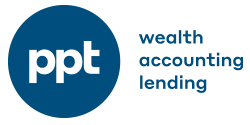Budget 2018: For Businesses
$20K Accelerated Depreciation Extended
The ability for small business entities to claim an immediate deduction for assets costing less than $20,000 has been extended until 30 June 2019.
From 1 July 2019, the immediate deduction threshold will reduce back to $1,000.
There are no limits to the number of times you can use the immediate deduction assuming your cashflow supports the purchases.
If your business is registered for GST, the cost of the asset needs to be less than $20,000 after the GST credits that can be claimed by the business have been subtracted from the purchase price. If your business is not registered for GST, it is the GST inclusive amount.
Second hand goods are also deductible. However, there are a number of assets that don’t qualify for the instant asset write-off as they have their own set of rules. These include horticultural plants, capital works (building construction costs etc.), assets leased to another party on a depreciating asset lease, etc.
If you purchase assets costing $20,000 or more, the immediate deduction does not apply but small businesses have the ability to allocate the purchase to a pool and depreciate the pool at a rate of 15% in the first year and 30% for each year thereafter.
Research & Development Incentive Shake-up
Date of Effect: 1 July 2018
Applying to income years starting on or after 1 July 2018, the way the research and development (R&D) tax incentive applies will change to focus on ‘more intensive’ R&D activities, particularly in medical and clinical development. The changes attempt to refocus the incentive on activities that go well beyond what companies would normally do to improve.
Companies under $20m
For companies with an aggregated annual turnover less than $20 million:
- An annual $4 million cap will be introduced on cash refunds for R&D claimants. Amounts that are in excess of the cap will become a non-refundable tax offset and can be carried forward into future income years;
- Clinical trials will be excluded from the $4 million cap on cash refunds, to encourage development in this area; and
- The refundable R&D tax offset will be amended and will become a premium of 13.5 percentage points above the company’s tax rate for that year.
Companies over $20m
For companies with aggregated annual turnover of $20 million or more, an R&D premium will be introduced that ties the rates of the non-refundable R&D tax offset to the incremental intensity of R&D expenditure as a proportion of total expenditure for the year.
The marginal R&D premium will be the company’s tax rate plus:
- 4 percentage points for R&D expenditure between 0% to 2% R&D intensity;
- 5 percentage points for R&D expenditure above 2% to 5% R&D intensity;
- 9 percentage points for R&D expenditure above 5% to 10% R&D intensity; and
- 5 percentage points for R&D expenditure above 10% R&D intensity.
The R&D expenditure threshold – the maximum amount of R&D expenditure eligible for concessional R&D tax offsets – will be increased from $100 million to $150 million per annum.
The ATO has expressed concerns in recent years that many claims are being made under the R&D tax incentive for expenditure that does not meet the strict conditions for the tax offset. For example, the ATO’s view is that some companies have been claiming the R&D tax offset in connection with normal business activities rather than experiments being undertaken for the purpose of generating new knowledge. In addition to the changes outlined above, additional resources will be provided to the ATO and Department of Industry, Innovation and Science to undertake greater enforcement activity and provide more guidance for those seeking to make claims.
Security, Road Freight, And Computer Design Services Become ATO Black Economy Target
Date of Effect: 1 July 2019
The taxable payments reporting system requires businesses in certain industries to report payments they make to contractors (individual and total for the year) to the ATO. ‘Payment’ means any form of consideration including non-cash benefits and constructive payments.
From 1 July 2019 the following industries will be required to lodge annual reports to the ATO:
- security providers and investigation services;
- road freight transport; and
- computer system design and related services.
The building industry, cleaning and courier businesses are already required to provide this enhanced reporting to the ATO.
The first annual report for these industries is required by August 2020. Businesses in these industries will need to start collecting information on payments to contractors from 1 July 2019.
No More Salary & Wage Tax Deductions For Late Paying Employers
Date of Effect: 1 July 2019
The Government really wants employers focussed on their tax obligations to the point where employers that fall behind will lose the right to claim employment related tax deductions.
Employers who do not keep up with their PAYG obligations will not be able to claim a tax deduction for payments to employees (such as wages).
Businesses will also lose the ability to claim deductions for payments made to contractors where the contractor does not provide an ABN and the business does not withhold PAYG.
More Entities To Be Caught By Significant Global Entity Rules
Date of Effect: 1 July 2018
Significant global entities (SGE) face an increased level of compliance. From 1 July 2018, the definition of an SGE will be expanded.
In very broad terms, at present, an entity is an SGE if:
- It is the parent entity of a group with annual global income of $1bn or more; or
- It is a member of a group that includes a parent entity with annual global income of $1bn or more and the group is consolidated for accounting purposes as a single group.
These rules could potentially apply to Australian subsidiary companies or Australian branches of foreign companies, regardless of the turnover of the Australian operations.
The definition of an SGE will be expanded from 1 July 2018 to include:
- members of large multinational groups headed by private companies, trusts and partnerships; and
- members of groups headed by investment entities.
If an entity is treated as an SGE then it could be exposed to:
- Increased penalties, including for situations where returns etc., are not lodged on time;
- Country-by-country reporting obligations; and
- The need to provide general purpose financial statements to the ATO if these have not already been provided to ASIC.
$10k Limit On Cash Transactions
Date of Effect: 1 July 2019
A limit of $10,000 will be introduced for cash payments made to businesses for goods and services from 1 July 2019. Payments above the threshold will need to be made through an electronic payment system or by cheque.
The measure does not impact on transactions with financial institutions or non-business consumer to consumer transactions. But, if you run a business, from 1 July 2019 you will not be able to accept cash transactions above $10,000.
Partnerships And The Small Business CGT Concessions
Date of Effect: From 7:30PM (AEST) on 8 May 2018
This measure seeks to close a loophole that provides access to the small business CGT concessions by partners in large partnerships.
Partners that alienate their income by creating, assigning or otherwise dealing in rights to the future income of a partnership (often referred to as Everett assignments) will no longer be able to access the small business capital gains tax (CGT) concessions in relation to these rights.
The small business CGT concessions assist owners of small businesses by providing relief from CGT on the disposal of assets related to their business. However, some taxpayers, including large partnerships, are able to access these concessions in relation to their assignment of a right to the future income of a partnership to an entity, without giving that entity any role in the partnership. Partly this is due to the fact that there is no minimum percentage interest that needs to be held by partners in a partnership to access these concessions, unlike the 20% threshold that normally applies to shareholders of a company or beneficiaries of a trust.
This has been an area of concern for the ATO for some time and in recent years the ATO has indicated that the general anti-avoidance rules can potentially apply to some of these arrangements. It appears that the Government has decided to simply take away some of the concessions in the tax system which make these arrangements attractive.
HELP Cost Recovery From Education Providers
New fee for service style arrangements will come into place for education providers to recover the costs of administering Higher Education Loan Program (HELP) including:
- An annual charge for HECS HELP and FEE HELP approved higher education course providers to partially recover the costs associated with administering the programs; and
- An application fee for higher education course providers seeking approval to offer FEE HELP loans.
SOURCE: Knowledge Shop
To discuss how this may impact your circumstances please contact PPT on (03) 5331 3711.
DISCLAIMER: The material and contents provided in this publication are informative in nature only. It is not intended to be advice and you should not act specifically on the basis of this information alone. If expert assistance is required, professional advice should be obtained.


